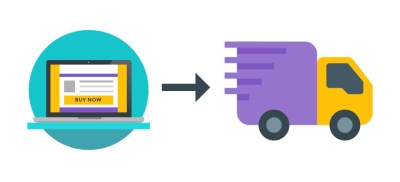
Integrating shipping process
Integrating Shipping Process for Ecommerce Portals and Apps
In the competitive world of Ecommerce, integrating the shipping process for Ecommerce portals and apps is crucial. Effective shipping integration enhances customer satisfaction and boosts operational efficiency. This blog post delves into how you can streamline the shipping process to ensure a seamless experience for your users.
Why Integrate Shipping with Ecommerce?
Integrating the shipping process for Ecommerce portals and apps offers numerous benefits. Firstly, it automates order fulfillment, reducing manual errors. Secondly, it provides customers with real-time tracking information. Finally, efficient shipping integration can significantly enhance overall customer experience and drive repeat business.
1. Choose the Right Shipping Partners
Selecting the right shipping partners is the first step. Ensure they offer reliable delivery services and align with your business needs. Partnering with multiple carriers can provide flexibility in shipping options. For example, using both local and international carriers can cater to a broader audience.
2. Automate Shipping Calculations
Automating shipping calculations can save time and reduce errors. Integrate your Ecommerce platform with shipping software to automatically calculate shipping costs based on weight, dimensions, and destination. This feature ensures accurate shipping charges and improves the checkout process.
3. Offer Multiple Shipping Options
Providing various shipping options caters to different customer preferences. Offer choices such as standard, expedited, and same-day delivery. This flexibility allows customers to select the option that best suits their needs and budget.
4. Implement Real-Time Tracking
Real-time tracking is essential for customer satisfaction. Integrate your Ecommerce portal or app with tracking systems provided by shipping carriers. This allows customers to monitor their order’s journey from warehouse to doorstep. Real-time updates reduce anxiety and improve the overall shopping experience.
5. Streamline Order Fulfillment
Efficient order fulfillment is key to a smooth shipping process. Implement systems that automate order processing, from picking and packing to shipping. For instance, use barcode scanning to ensure accurate order fulfillment. This minimizes errors and speeds up the shipping process.
6. Optimize Packaging
Proper packaging is vital for preventing damage during transit. Invest in quality packing materials and ensure that your products are securely packed. Additionally, integrate packaging solutions with your shipping software to determine the most efficient packing methods for various products.
7. Offer Easy Returns
An easy return process enhances customer trust and satisfaction. Integrate a straightforward returns management system into your Ecommerce platform. Provide clear instructions and return labels to simplify the process for your customers. A hassle-free return policy can boost customer loyalty and encourage repeat purchases.
8. Monitor Shipping Performance
Regularly monitor and analyze your shipping performance. Use analytics tools to track key metrics such as delivery times, shipping costs, and customer feedback. Identifying areas for improvement helps in refining your shipping strategy and addressing any issues promptly.
9. Communicate Clearly with Customers
Effective communication is crucial for a positive shipping experience. Keep customers informed about their order status through automated emails or SMS notifications. Provide updates on order confirmation, shipping, and delivery. Clear communication helps manage customer expectations and reduces inquiries.
10. Integrate with Inventory Management
Seamless integration with inventory management systems ensures accurate stock levels and prevents overselling. Sync your shipping process with your inventory to automatically update stock levels as orders are processed. This integration helps in maintaining a smooth flow of operations and avoiding stock discrepancies.
Conclusion
Integrating the shipping process for Ecommerce portals and apps is essential for enhancing customer experience and operational efficiency. By choosing the right shipping partners, automating calculations, and offering multiple options, you can streamline the shipping process. Additionally, implementing real-time tracking, optimizing packaging, and offering easy returns can significantly boost customer satisfaction.
Monitoring shipping performance and communicating clearly with customers further ensures a seamless experience. Finally, integrating with inventory management systems helps maintain accurate stock levels and prevent issues.
In summary, a well-integrated shipping process can transform your Ecommerce business. By focusing on these strategies, you can improve efficiency, reduce errors, and ultimately deliver a superior experience to your customers.
